Zynga Inc. has regained the spotlight following a recent U.S. District Court decision regarding allegations of fraud prior to the company’s initial public offering (IPO) in December 2011. This decision comes less than one year after similar allegations were dismissed following testimony of employees and witnesses of Zynga’s fraudulent business practices.
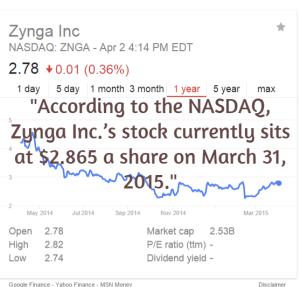 According to the NASDAQ, Zynga Inc.’s stock currently sits at $2.865 a share on March 31, 2015. However, the company’s previous history predictions of high ROIs fell short following the launch of Zynga’s IPO in December 2011, which ultimately led to the current legal situation involving fraud, concealment of business expectations, and inflation of its 2012 revenue forecast.
According to the NASDAQ, Zynga Inc.’s stock currently sits at $2.865 a share on March 31, 2015. However, the company’s previous history predictions of high ROIs fell short following the launch of Zynga’s IPO in December 2011, which ultimately led to the current legal situation involving fraud, concealment of business expectations, and inflation of its 2012 revenue forecast.
U.S. District Judge Jeffrey White released a statement to the public on March 25 that shareholders of Zynga Inc. would be able to continue legal proceedings for Zynga’s fraudulent claims.
On March 2, 2012, Zynga saw a peak in share prices at $15.01; however, the price dropped to less than $3.00 per share four months and 24 days later. While this appeared to be nothing more than a slump in sales and user spending at first, witnesses’ accounts reveal a sinister side to Zynga’s IPO.
According to more than six confidential witnesses, protected by the Whistleblower Act, Zynga management purposely committed fraud to give shareholders a false sense of security and increase purchases of Zynga shares following Zynga’s IPO.
White said, “Confidential witnesses all corroborate that the updates on game users and spending data was readily accessible to Zynga’s management,” which supports shareholder’s claims that Zynga knowingly hid information to produce a strong 2012 forecast.
The true heart of this situation, Zynga Inc., refused to comment on White’s decision according to Zynga spokeswoman, Kelly Pakula Kunz.
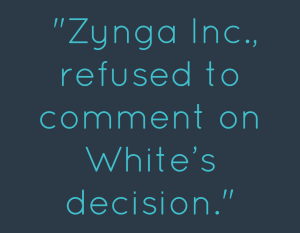 Since before the dismissal of allegations in February 2013, Zynga shares have remained steady below $5. Part of the problem lies in a failure of Zynga to introduce new games as competitors, such as King Digital Entertainment Plc, continue to make millions on games like “Candy Crush Saga and Bubble Witch.”
Since before the dismissal of allegations in February 2013, Zynga shares have remained steady below $5. Part of the problem lies in a failure of Zynga to introduce new games as competitors, such as King Digital Entertainment Plc, continue to make millions on games like “Candy Crush Saga and Bubble Witch.”
While current information on when this lawsuit will settle remains unknown, lawsuit settlement cases involving fraudulent business practices will continue to be a primary concern for the U.S. District Courts. After both sides have had an opportunity to discuss how to best ensure financial remuneration for Zynga’s actions, shareholders will be able to get some, if not all, of their money back as part of the future lawsuit settlement payment.

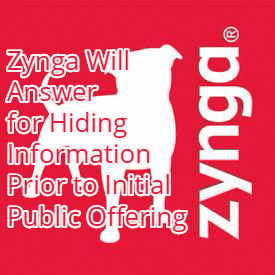
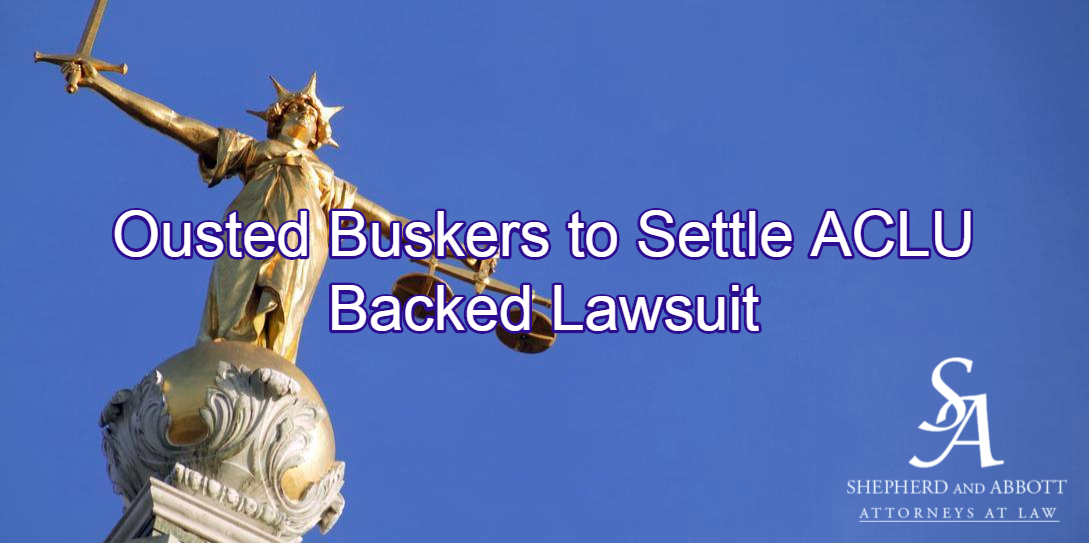
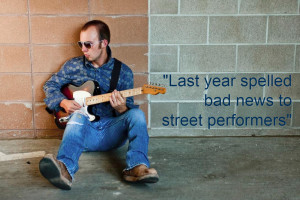 Last year spelled bad news to street performers, also known as buskers, in Saugatuck, Michigan. Street performers throughout Saugatuck had been told they must obtain permits before performing on sidewalks in an attempt to earn tips. Street performers fell under the Public Entertainment Ordinance, making it much more difficult for buskers to busk.
Last year spelled bad news to street performers, also known as buskers, in Saugatuck, Michigan. Street performers throughout Saugatuck had been told they must obtain permits before performing on sidewalks in an attempt to earn tips. Street performers fell under the Public Entertainment Ordinance, making it much more difficult for buskers to busk.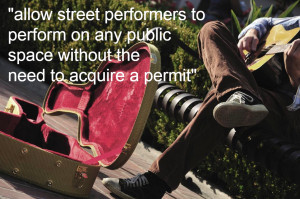 According to the ACLU, Saugatuck’s Public Entertainment Ordinance, required that businesses who wish to host an event acquire a permit 60 days prior to the event, hold related insurance and even provide toilets and parking to attendants. While a reasonable request of an event hosted by a business, this ordinance was also being applied to street performers. How could they possibly comply?
According to the ACLU, Saugatuck’s Public Entertainment Ordinance, required that businesses who wish to host an event acquire a permit 60 days prior to the event, hold related insurance and even provide toilets and parking to attendants. While a reasonable request of an event hosted by a business, this ordinance was also being applied to street performers. How could they possibly comply?